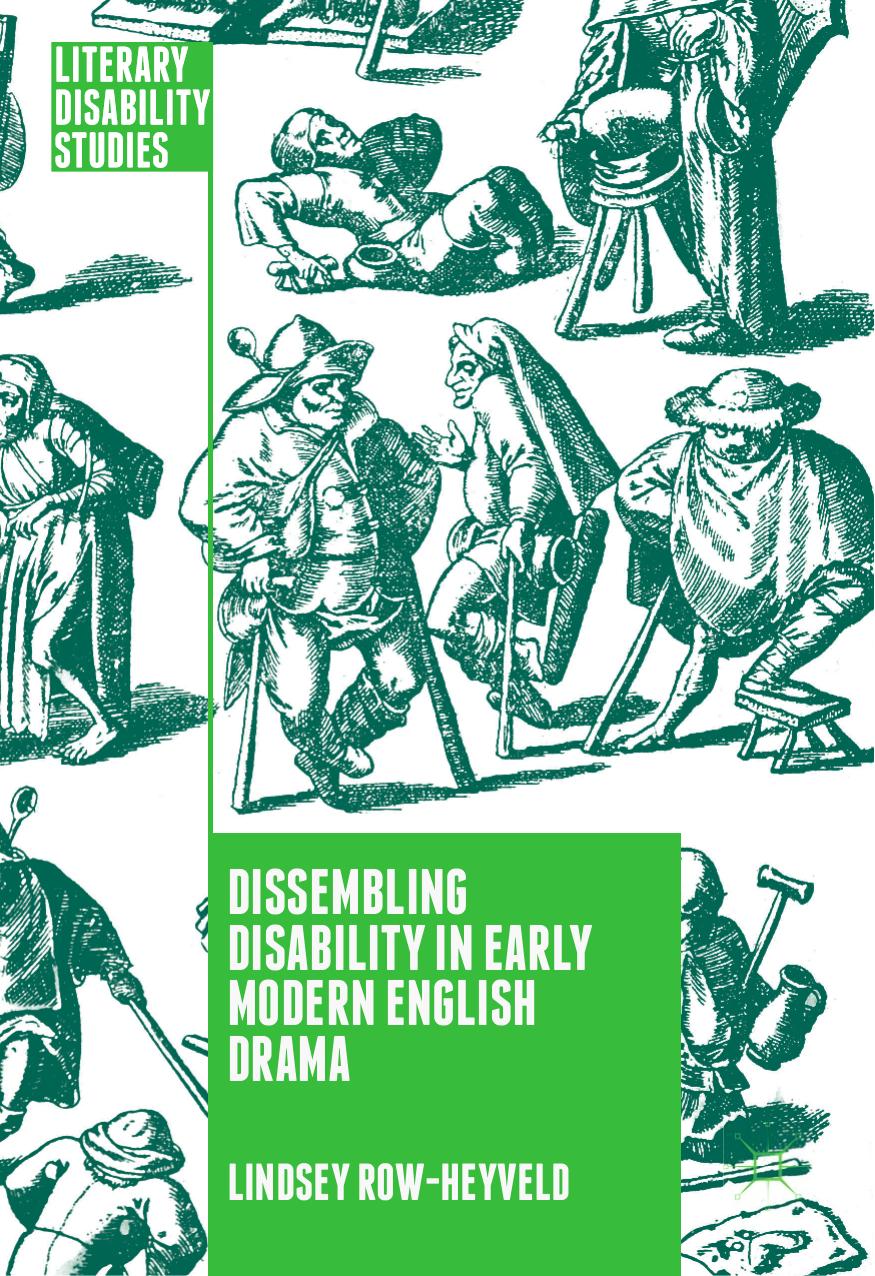Dissembling Disability in Early Modern English Drama by Lindsey Row-Heyveld

Author:Lindsey Row-Heyveld
Language: eng
Format: epub, pdf
ISBN: 9783319921358
Publisher: Springer International Publishing
This realization precipitates Roderigoâs unlikely conversion. Immediately after their encounter, he falls asleep in the woods and wakes a changed man, one who reconciles with Pedro, relinquishes his claim on Alindaâs affections, and repents of his sins. In The Pilgrim, disability not only elicits charity from its audiences , but it has the power to transform those audiences into charitable people as well.
Alindaâs performance of the non-standard body in this moment succeeds in filling Roderigo with shame and repentance, but it utterly depletes her. As we have seen, ambivalent endings are conventional in plays that feature women in disability drag, but Alindaâs loss of power in The Pilgrim is so extreme as to be remarkable even within that tradition. The wavering resolve that she displays as her dissembling of disability becomes more varied and more frequent completely evaporates when she next appears on stage. Although reunited with Juletta, she sees no way out of the predicament she has performed herself into. Juletta insists that Alinda transform herself one final time or else risk discovery (and worse, since the women are unaware of Roderigoâs recent conversion), but Alinda has lost the imagination and the energy to make the change again. âI have no means to shift it,â she says of her previously easy-to-alter identity (5.2.31). Throughout the scene, Alinda is reticent and ambivalent, ready to accept whatever death will come to find her; her only action is to tremble violently. She even has difficulty placing her trust in Juletta because âmy fears have so distracted me / I durst not trust myselfâ (5.2.21â2). Alindaâs final performance is only possible because Juletta provides her with everything she needs: food, shelter, clothing, a plan, and motivation to complete it. The two women disguise themselves as old women and confront Pedro and Roderigo, convincing them to return to the city and reconcile themselves with the authorities there.40 In this way, it is Juletta and not Alinda who resolves the conflicts of the drama, supplanting her as the playâs heroine in its final scenes.
Why does Alindaâs performance of disability fail? In a play that appears to affirm so clearly the possibilities of performative identity to empower women and inspire generosity, why does The Pilgrim rescind those same opportunities from its central character? I believe that Alindaâs limited performanceâand, similarly, the ambivalent endings of many of the plays featuring female dissemblersâis a result of the overlap between femininity and disability in early modern England. While femininity and disability were uniquely compatible for eliding the criminal associations of the non-standard body, the mutual construction of those two identities made them uniquely incompatible with the tradition of counterfeit disability. Avoiding the criminal aspects of disability meant that womenâs performances of the non-standard body projected a characterization of disability that was wholly pitiful, deserving of charity, but never suspicion. However, the very fact that these performances were performances undercuts the characterization of disability that these plays initially seem to support. The performance of disability by an able-bodied person is
Download
Dissembling Disability in Early Modern English Drama by Lindsey Row-Heyveld.pdf
This site does not store any files on its server. We only index and link to content provided by other sites. Please contact the content providers to delete copyright contents if any and email us, we'll remove relevant links or contents immediately.
| Anthropology | Archaeology |
| Philosophy | Politics & Government |
| Social Sciences | Sociology |
| Women's Studies |
Cecilia; Or, Memoirs of an Heiress — Volume 1 by Fanny Burney(32546)
Cecilia; Or, Memoirs of an Heiress — Volume 2 by Fanny Burney(31944)
Cecilia; Or, Memoirs of an Heiress — Volume 3 by Fanny Burney(31929)
The Great Music City by Andrea Baker(31916)
We're Going to Need More Wine by Gabrielle Union(19034)
All the Missing Girls by Megan Miranda(15955)
Pimp by Iceberg Slim(14488)
Bombshells: Glamour Girls of a Lifetime by Sullivan Steve(14057)
For the Love of Europe by Rick Steves(13907)
Norse Mythology by Gaiman Neil(13348)
Talking to Strangers by Malcolm Gladwell(13347)
Fifty Shades Freed by E L James(13232)
Mindhunter: Inside the FBI's Elite Serial Crime Unit by John E. Douglas & Mark Olshaker(9320)
Crazy Rich Asians by Kevin Kwan(9277)
The Lost Art of Listening by Michael P. Nichols(7494)
Enlightenment Now: The Case for Reason, Science, Humanism, and Progress by Steven Pinker(7306)
The Four Agreements by Don Miguel Ruiz(6744)
Bad Blood by John Carreyrou(6611)
Weapons of Math Destruction by Cathy O'Neil(6264)
